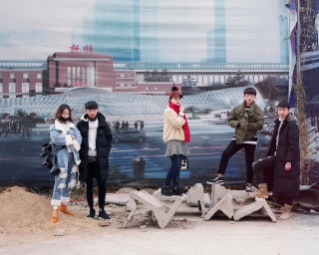


Domus: Under your direction, this 2014 Biennale looks like a coral event. Could you tell us more about this peculiar choice?
Jan Boelen: More than a choice, BIO 50’s shift in direction was a necessity. The invitation to curate this Biennial made me reflect on the significance and impact of a design event today. It made no sense to continue within the pedagogical effort of an awards competition, which was the framework within which BIO – as most design events created in the 20th century – originated. Back then, the world was a place of mass production and distribution; today, we are seeing a transition towards small-scale, local and specific scenarios of production, where the designer is no longer an all-powerful creator, but an element in a network of collaboration and influence. Any design even that seeks to truly reflect the contemporary must embrace these changes, and for BIO, that meant a shift towards collaboration and complexity. This generates what you called a “choral” event, where many multidisciplinary agents come together, with their strengths and weaknesses, to create something new.

D: In your words, what is the future of design?
JB: Design has become a form of enquiry, of power, and of agency. The discipline can, today, be a tool with which to question and transform ideas about industrial production, public and private space, and pre-established systems and networks. As the design field grows in complexity and in multiple directions, it becomes impossible to speak of a single future for design. Instead, we can speak about possible futures. With BIO 50, we are attempting to explore some of these.

D: You have divided your Biennale in several themes, which spread from social to fashion. It looks like a unique biennale, conceived as a collective laboratory on different theme. What are your expectations?
JB: The BIO 50 themes were defined following a series of research trips to Slovenia, and always in dialogue with local and international agents. From Affordable Living to Knowing Food and from The Fashion System to Hacking Households, the topics not only resonate with local and global demands, but also tackle issues at the micro and macro scale. The collaborative work process was launched earlier in February, and at the moment, more than 100 participants from all over the world are working simultaneously in the creation of one or more projects that will be presented at the opening of BIO 50, on 18 September. The idea of the laboratory was present from the inception of the BIO 50 concept, and as in all laboratories, there are more chances for failure than success. However, considering the more than 120 people that gathered in Ljubljana a couple of weeks ago for the teamwork kick-off, I truly believe that something extraordinary will come out of this effort. The determination and energy I saw in those days brings to mind Francis Alÿs’ 2002 project When Faith Moves Mountains, and confirms that collaboration is the obvious and necessary way to go.

from September 18, until December 7, 2014
BIO 50
Ljubljana, Slovenia









